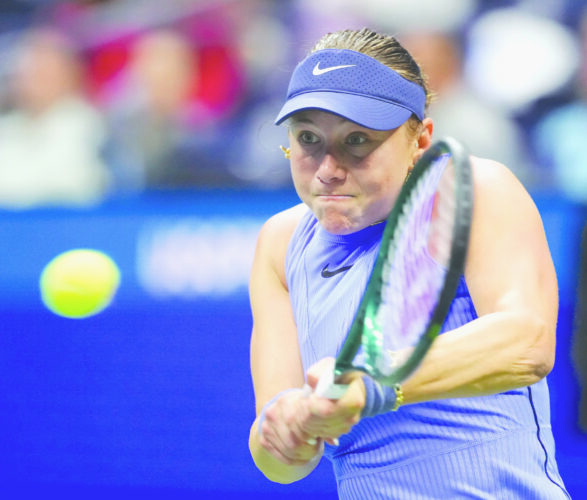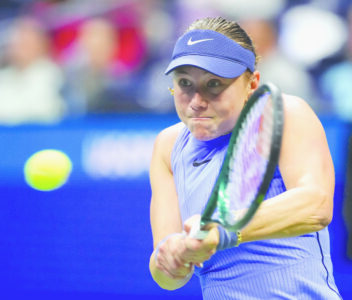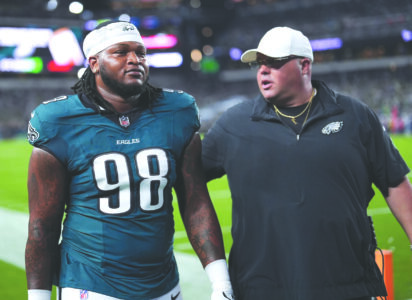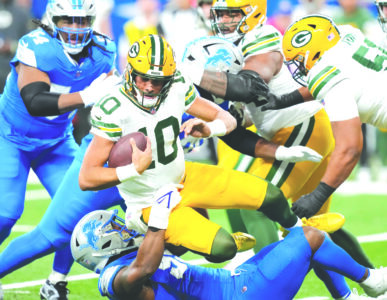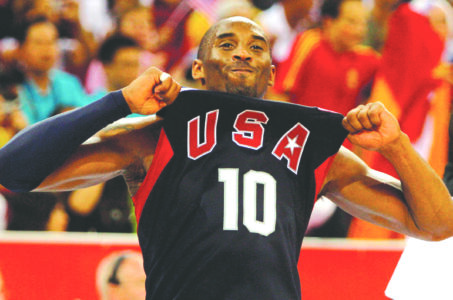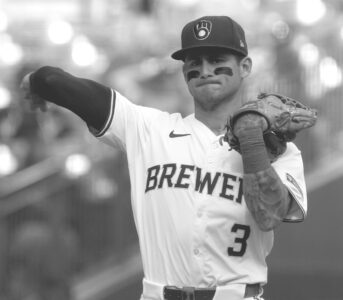American faces defending champ in US Open women’s final today
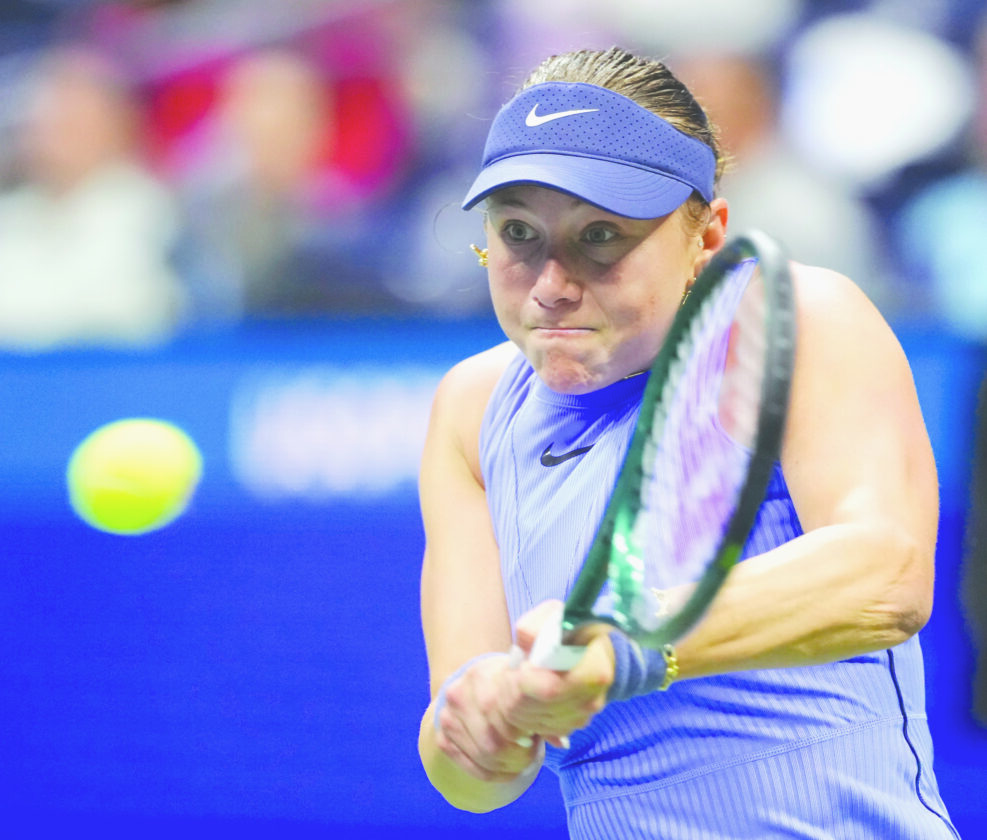
Amanda Anisimova returns a shot to Naomi Osaka during their women's singles semifinal at the U.S. Open on Friday in New York. (AP photo)
NEW YORK — It is impossible to look ahead to Amanda Anisimova’s U.S. Open final against defending champion Aryna Sabalenka today without viewing it through the prism of what happened less than two months ago at the last Grand Slam tournament, Wimbledon.
Impossible for Anisimova. Impossible for Sabalenka. Impossible for anyone, really.
That’s because, for one thing, Anisimova made it to her first title match at any Grand Slam tournament by beating the No. 1-ranked Sabalenka in the semifinals at the All England Club to improve to 6-3 in their head-to-head series. And because, of course, Anisimova’s major final debut ended with a loss — and not just any sort of loss, but a 6-0, 6-0 shutout against Iga Swiatek.
Anisimova seeks 1st
The way Anisimova, a 24-year-old American who is the No. 8 seed at Flushing Meadows, managed to put that defeat behind her immediately and not just play well, but well enough to eliminate Swiatek, of all people, in the U.S. Open quarterfinals, en route to making it to another final, is remarkable.
“It just shows that I have worked really hard, especially on my mental game and not giving up,” Anisimova said after coming back to defeat four-time major champion Naomi Osaka 6-7 (4), 7-6 (3), 6-3 in a semifinal that ended shortly before 1 a.m. Friday. “Like today, I could have easily said, ‘Oh, she’s playing better than me, and I can’t really do anything.'”
Anisimova didn’t shy away from thinking about, or talking about, what happened at Wimbledon.
Rather than completely erase it, she even watched that final the night before her rematch against Swiatek in New York, “as painful as it was, just to see what I can avoid or what went wrong,” said Anisimova, who was born in New Jersey and grew up in Florida.
Learns at Wimbledon
She paid attention to tennis-specific aspects, and made an effort to understand how to better deal with the kinds of pressure that arise.
“I have really worked on myself to really be able to handle those moments and to believe in myself, even when it feels like, ‘What is there to believe in?’ in a way, when you’re not playing that well,” she said. “I have really done a better job of that.”
Rethinking setback
After her semifinal win over 2024 U.S. Open finalist Jessica Pegula on Thursday, Sabalenka was asked what sticks out from the loss to Anisimova in July.
“I have to trust myself, and I have to go after my shots. I felt like in that match at Wimby, I was doubting a lot my decisions, and that was the main thing that was bringing a lot of unforced errors,” said Sabalenka, the runner-up to Madison Keys at the Australian Open in January and to Gauff at the French Open in June.
“I gave her a lot of opportunities, and of course, she played incredible tennis,” Sabalenka said about Anisimova, “but I feel like I had my opportunities. I didn’t use them.”
___
Howard Fendrich has been the AP’s tennis writer since 2002. Find his stories here: https://apnews.com/author/howard-fendrich. More AP tennis: https://apnews.com/hub/tennis